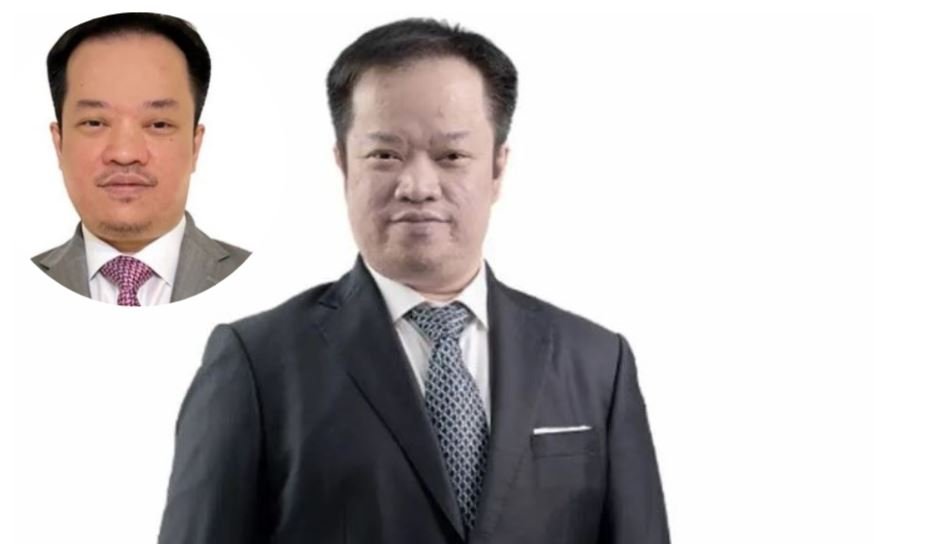
The market responded almost immediately to Abang Abdillah Izzarim’s arrival in the Minetech Resources Bhd boardroom. Investors, who are particularly sensitive to changes in leadership, responded with a startling 14.3% increase in share prices—an exceptionally quick endorsement in a boring industry. That unexpected rally was a show of confidence in a name that is highly respected in Sarawak and beyond, not just hope.
Abdillah, the son of Sarawak Premier Tan Sri Abang Johari, has purposefully forged a career that both parallels and departs from his father’s political path. The younger Abdillah has concentrated his efforts on quietly but deliberately gaining influence across business sectors, while the elder Johari has long concentrated on state development and autonomy. He didn’t settle for comfort when he started out as a commercial pilot. He demonstrated a keen understanding of industries that are focused on the future by moving into ICT ventures and gaming software with remarkable ease.
Abang Abdillah Izzarim — Bio and Career Highlights
| Full Name | Abang Abdillah Izzarim Abang Abdul Rahman Zohari |
|---|---|
| Age | 45 |
| Parent | Premier Tan Sri Abang Johari Tun Openg |
| Early Career | Commercial and private pilot |
| Industry Ventures | Aviation, ICT, PC game development, solar energy |
| Key Positions | Executive Chairman at Minetech Resources Bhd (2024) |
| Former Positions | Executive Chairman at SCIB (June–Dec 2023) |
| Other Roles | Director at Berjaya Land Bhd, Irix Sdn Bhd, Cempaka Helicopter |
| Notable Investment | Acquired 240 million shares in Minetech (15.58% stake) |
| Public Sentiment Impact | Sparked 14.3% share price surge at Minetech |
He started his business career managing aviation cargo logistics for Aerotrain Charter. Despite being technical, that position taught him the value of accuracy and promptness, which would later inform his business choices. He embraced both risk and creativity by pursuing a career in animation and PC game development. That was a daring move for someone with political ancestry. It was about creating something concrete, not about depending on a name.
It was especially significant that he was recently hired by Minetech. He came with a purpose in addition to a sizable investment—240 million shares, to be exact. He made it clear in his statement that he wanted to use his varied experience to help shape the future because he saw enormous potential for growth, especially in Sarawak. Such clarity is extremely uncommon, particularly in Malaysia’s corporate sector, which is frequently closed off.
The fact that he left Sarawak Consolidated Industries Bhd only six months after being named executive chairman was equally noteworthy. The move appeared sudden on paper. However, it seems more like a planned retreat when analyzed from the perspective of strategic repositioning. Bursa Malaysia had been investigating the company because of previous financial reporting delays. It was a very practical move to leave SCIB and shift attention to Minetech, where there is more space for innovation and growth.
Abdillah’s business interests reflect Sarawak’s transformation agenda rather than just echoing it, which is what makes him so intriguing. Abdillah is already involved in the discussions surrounding the state’s push for clean energy and digital infrastructure thanks to his position as CEO of Irix Sdn Bhd, a local telecom company, and his ownership of solar projects under Minetech. It is not merely a coincidence that he aligns with Sarawak’s growth strategy; rather, it is a purposeful parallel that combines ambition and legacy.
Malaysia is not the only country where this phenomenon occurs, where family legacy creates a pathway for wider influence. The descendants of business and political elites throughout Asia are increasingly gravitating toward investment-led leadership, sustainability, and technology. In Singapore, ministers’ children are frequently observed holding executive positions in funds and startups. Traditional business families in India give rise to modern industrialists with fresh goals. The same trajectory can be seen in Abdillah’s journey, which is both influenced by personal conviction and deeply rooted in tradition.
Notably, there is additional symbolism associated with his most recent position at Berjaya Land Bhd. Abdillah’s appointment to the board offers the Berjaya Group stability and a new viewpoint at a time when the company is embroiled in legal disputes over the Selangor Maritime Gateway project. Berjaya’s leadership is probably counting on his quiet but firm leadership style to foster a more resilient, governance-focused culture.
His reputation as a hands-on leader has proven especially advantageous in sectors that have historically been dominated by traditional stakeholders. He has been able to give otherwise sluggish industries a sense of impetus through well-timed investments and appointments. He has been especially successful—almost unusually so—at balancing bureaucracy and innovation because of this trait, which is frequently absent from legacy appointments.
In addition to providing business leadership, his ascent also gives many Sarawakis a sense of continuity. Abdillah seems to be putting Premier Abang Johari’s goal of autonomy and digital development at the state level into practical business endeavors. He is a particularly creative figure in Malaysia’s next generation of leaders because of his capacity to balance both public opinion and personal aspirations.
Abdillah’s leadership style is influenced by both his history and his incredibly flexible outlook. His adaptability becomes a strength as markets and industries change. Because of this, his path is especially pertinent in an area where sustainability is frequently determined by adaptability. His investment in people and platforms provides a positive model in today’s corporate environment, where public trust is hard-won and volatility is common.
It is anticipated that his influence will grow even more in the upcoming years. Figures like Abdillah, who are already positioned in strategic sectors, will become more visible as Sarawak accelerates its goals for digital and renewable energy. His role will probably grow through board-level governance, smart infrastructure, or corporate innovation.
